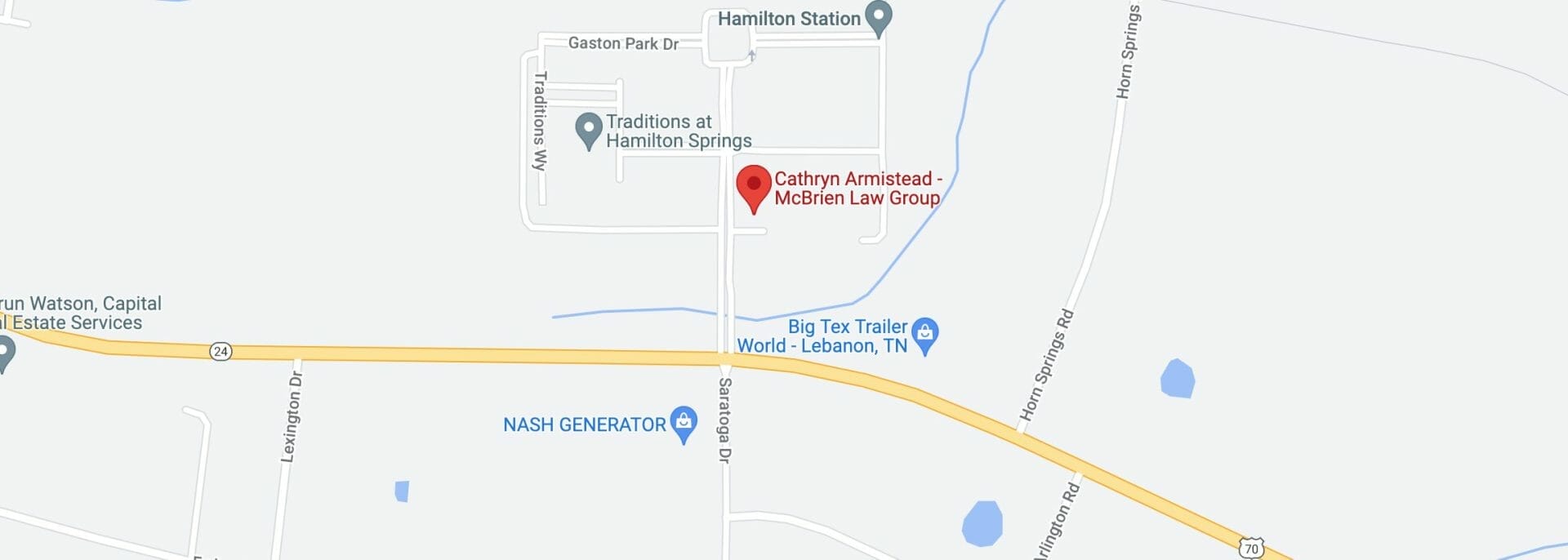In the complex legal guardianship and decision-making authority world, understanding the nuances between conservatorship, power of attorney (POA), and adoption is crucial. This blog post, crafted by McBrien Armistead Law Group, aims to demystify these concepts, focusing on how to obtain conservatorship in Tennessee, its differences from POA, and how it stands in relation to adoption.
Conservatorship vs. Power of Attorney: What’s the Difference?
At the core, both conservatorship and power of attorney arrangements are designed to assist someone who may not be fully capable of making decisions independently. However, there are key distinctions:
Conservatorship is a court process in which a judge appoints an individual (the conservator) to make decisions for another person (the conservatee) who cannot manage their own affairs due to physical or mental limitations. Notably, conservatorship is often considered when the person has not designated a power of attorney before becoming incapacitated.
Power of Attorney, on the other hand, is a voluntary agreement where one person (the principal) grants another person (the agent or attorney-in-fact) the authority to make decisions on their behalf. This arrangement can be set up before any incapacity occurs and can be as broad or as limited as the principal desires.
How Does Conservatorship Override Power of Attorney?
One common question is whether conservatorship overrides a power of attorney. The answer depends on the circumstances. If a power of attorney is already in place and adequately addresses the needs of the individual, a conservatorship may not be necessary. However, if there are concerns about the agent’s actions or decisions under a POA, or if the POA is deemed insufficient for the individual’s needs, a court may decide to establish a conservatorship instead.
Obtaining Conservatorship in Tennessee
To obtain conservatorship in Tennessee, one must file a petition with the local court detailing why the conservatorship is needed. This process typically involves:
Filing a Petition: Clearly explaining the reasons for the conservatorship and providing evidence of the individual’s incapacity.
Medical Examination: Submitting a detailed medical report from a licensed physician to confirm the individual’s condition.
Court Hearing: A hearing where the judge evaluates the evidence and decides whether conservatorship is in the best interest of the individual.
It’s important to note that conservatorship is a significant legal step, often involving ongoing court oversight and annual reporting by the conservator.
Conservatorship vs. Adoption
While conservatorship and adoption may seem similar in that both involve taking responsibility for another individual, they serve different legal and emotional purposes:
Conservatorship is primarily focused on managing the financial affairs and/or personal care of someone who is unable to do so themselves due to disability or incapacity. It does not create a familial relationship between the conservator and the conservatee.
Adoption, conversely, permanently alters the legal relationship between an individual (usually a child) and the adoptive parents, establishing a parent-child bond recognized by law.
Understanding these distinctions helps clarify the appropriate legal avenue for different situations, whether it’s managing the affairs of an incapacitated adult through conservatorship, making decisions on behalf of another via a power of attorney, or creating a new family bond through adoption.
Navigating the complexities of conservatorship, power of attorney, and adoption requires careful consideration and often the guidance of experienced legal professionals. At McBrien Armistead Law Group, we’re committed to helping you understand your options and confidently navigate the legal process. Whether you’re considering conservatorship, setting up a POA, or exploring adoption, our team provides the support and expertise you need.



